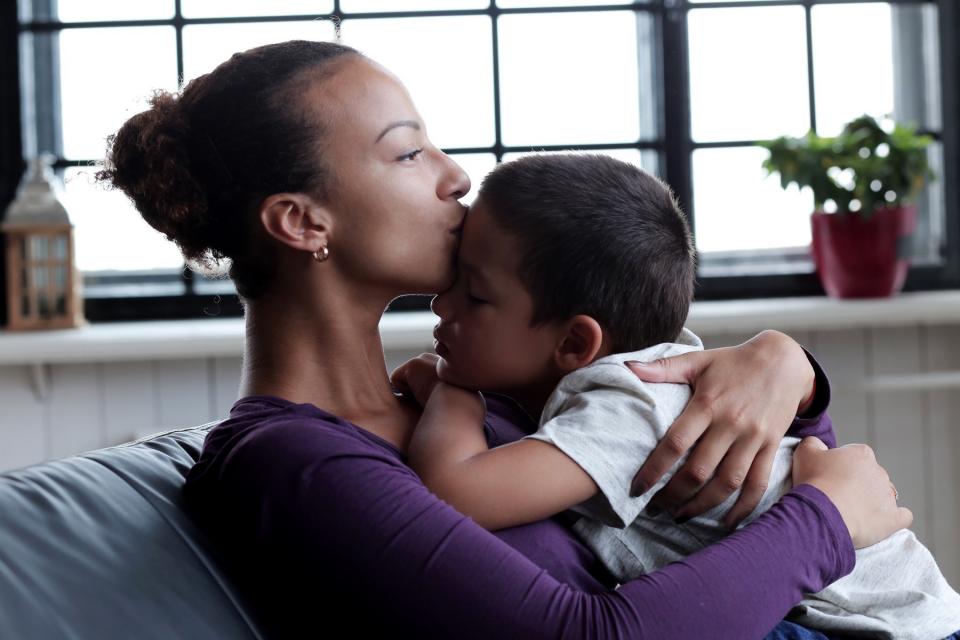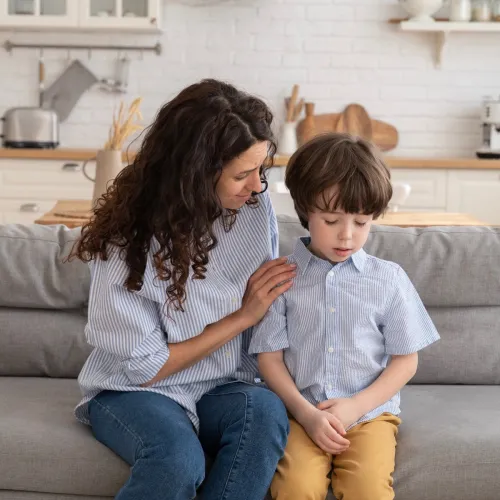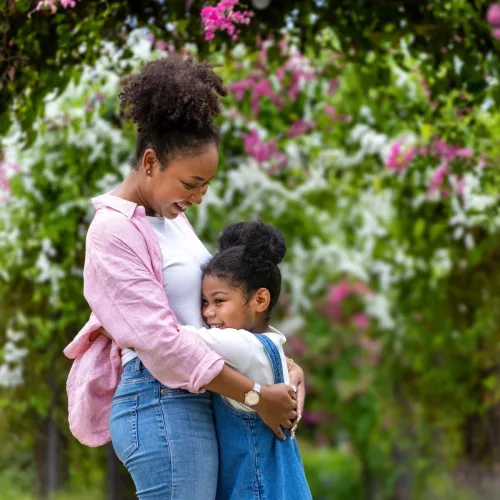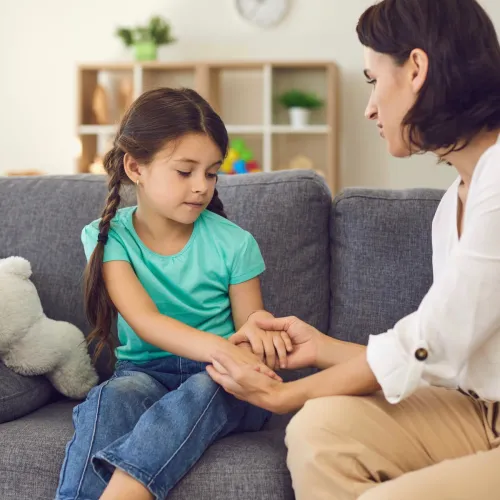Talking to Your Kids About Divorce: Age-Appropriate Strategies

As a parent, telling your kids that you plan to divorce can be one of the most difficult conversations you'll ever have. Even if you feel in your heart that you are making the best choice for your family, it does not diminish how painful it can be to share this news with your children.
For kids, it can come as a great shock to learn that their parents have decided to divorce, regardless of how old they are. The way you approach the initial conversation will play a significant role in how each of your children react and how they manage their feelings moving forward. Through it all, your biggest concern about your children should be their health and overall well being during this time of transition.
Many children of divorced parents never forget this conversation, ever. You cannot control their reaction to this news, but you can prepare for the talk and how you plan to handle future questions or discussions on this matter.
Talking to Your Kids About Divorce: The Basics
No matter what age your kids are when you divorce, there are some basic strategies for how to handle the initial conversation. It might not be the smoothest, least-dramatic discussion you've ever had, but the way you conduct the conversation as parents can hugely influence how your children move forward with this news.
Do it at the right time. Children need to hear a clear, strong message regarding your decision to divorce. An indecisive message could confuse your kids and make everything much more difficult. Don't say anything to your children about divorce until you know with certainty that it is going to happen.
Tell your family when everyone is together. Share the news with everyone at the same time instead of telling your children one at a time. Don't exclude any member of your immediate family, including your younger children. In this initial discussion, share the news in such a way that everyone there will understand. Break-off discussions with your kids individually will surely take place later on.
Make no assumptions. Don't assume that you know how your children will react to this news. An older child may respond with relief, knowing that tension in their household may be alleviated, while a younger child may react with anger and fear. Whatever their initial reaction is, let it happen.
Maintain your composure. Display a united front where both parents take responsibility for this decision. Do not place blame upon each other as parents at this moment, and make it very clear to your kids that this is not their fault either.
Age-Appropriate Strategies for Talking About Divorce
Talking to kids about divorce isn't a one-size-fits-all conversation. It's essential to consider each of your children on an individual level and how they may react. But even still, it can be hard for someone who hasn't been through this before to know what to do.
Looking to your child's age is a good place to start when preparing for this kind of discussion. Based on their age and level of development, you can better understand how best to explain the divorce to your child and what to expect moving forward.
0 - 5 Years
Children in this age range are incredibly dependent on their parents and other caregivers. They have little understanding of what different feelings mean or how to anticipate future situations. Very young children won't truly understand the significance of their parents' divorce and how that will impact their family moving forward.
When talking to children in this age range about divorce, keep your explanations straightforward and short. All they really need to know are the crucial facts: which parent is moving out, where are they moving, and when will they see that parent.
Very young children aren't yet able to articulate their feelings as well as older children, so it's important to watch out for behaviors that could be a sign that they are having a hard time with the divorce. Backtracking in their development, clinging to either parent, and increased irritability are a few signs that your child might need extra support through this difficult time.
6 - 11 Years
As children grow, they are better able to articulate their feelings and have a greater understanding of complicated issues and situations. They may also have a newfound desire to spend more time with friends and do activities they've grown to enjoy. Still, they rely on their parents and caregivers to make sure their basic needs are met.
Similar to very young children, keep your discussion straightforward and simple. You're likely to receive more questions from kids in this age group, so keep your answers basic and easy to understand. Encourage your kids to continue participating in the activities they love and spending time with their friends. As much as they need you, that kind of support can be a big help during a difficult time like this.
Remind your children that you love them and that they had nothing to do with your decision to divorce. Sometimes, books about families facing similar situations can be a supportive tool for kids around these ages by showing them that they are not the only ones going through this and that it's ok to have feelings about the circumstances their family is facing.
12 - 18 Years
The older your children grow, the more they'll be able to understand what divorce means. They may have even more questions for you, including ones about details they don't need to know. Outside of the home, their time and their concerns may be more consumed than ever with other responsibilities like after-school jobs, extracurriculars, and friends.
While it's still best to lay out the most important facts, older children may want to talk more than listen. Keep lines of communication open. Encourage your kids to talk to you about the divorce, and let them express their feelings to you. Give them space to seek comfort in the activities outside of the home that they love and to retreat to the other people they care about outside of the house. That said, do keep an eye out for dangerous or destructive behaviors, and provide healthy supporto to help them avoid or overcome those behaviors.
Adult Children
While they might be off to college or even have a family of their own, adult children will still be impacted by their parents' divorce. Learning that their parents are divorcing so late in life can be a real shock to the system for an adult who might not understand what lead to this point so late in the game.
Talk to your adult children as adults, but don't forget that they are still your children through and through. Therefore, you might withhold certain details that you would otherwise tell to a close friend or therapist.
No matter how you look at it, talking to kids about divorce is hard at any age. But it's the first step in moving your family into a new chapter. Take care about how you share the news initially. You'll continue to address questions as time goes on, so keep these age-appropriate strategies in mind as you are faced with them down the line.



